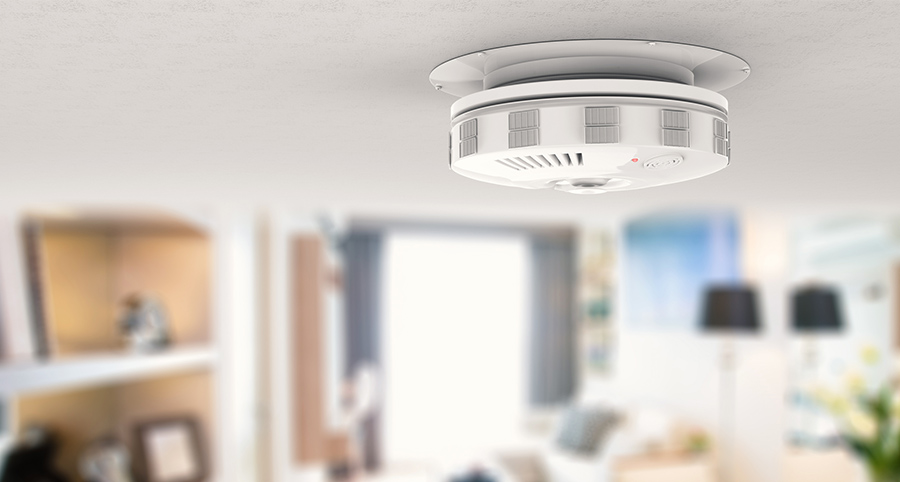Are there differences between standard smoke detectors vs. monitored fire alarms in St. Petersburg?

In the St. Petersburg smoke detector vs. monitored fire alarm debate, one alarm rises above the rest. Smoke detectors are a vital first step in guarding your house from fire, but they have a few concerning limitations. On the other hand, monitored fire alarms have more methods to discover a fire and can notify a monitoring team in the event of a disaster. Pairing your fire alarms to a home security system also brings out various extra perks that your common smoke detectors could only dream about.
The shortcomings of traditional smoke alarms in [[targetlocaion]]
Defending against fire is a crucial consideration, and smoke detectors take on a critical part in shielding your family. Even so, smoke detectors have some shortcomings. To illustrate, they are only able to react to smoke, not high temps. If there is an emergency in your home, you might not be alerted before the smoke reaches the smoke detector. Although there are some other telltale signals of fire -- including a marked increase in warmth -- if you don’t have smoke, you won’t have a warning from your smoke detector.
Additionally, smoke detectors only sound the alarm if they encounter ample smoke. In the event a fire begins slowly, you might not be cautioned until the flames are out of control. Some smoke detectors employ dual-sensor technology, which means they will be able to perceive smoke from both a blazing inferno and smoldering remnants. Whenever they start beeping, it falls to the resident to notify emergency services after safely leaving the premises.
Monitored fire alarms provide more value than regular smoke detectors
Although they have a similar appearance to regular smoke detectors, monitored fire alarms have added advantages. When linked to a comprehensive home security package, they can:
- Identify fire with dual-sensor smoke detection: Comparable to a traditional smoke detector, the monitored device has the ability to activate from an intense fire or one that has just started smoking. It will sound an easily audible beeping if it perceives a potential disaster.
- Detect fire with a rapid rise in heat: A monitored fire alarm may even trigger if it notices an unusual increase in heat. Frequently, heat arrives before smoke. Having additional methods to uncover a fire means more means to keep your family safe.
- Warns your dedicated monitoring agents: Fires may happen whether you are on site or somewhere else. No matter of the situation, your fire alarms will warn your monitoring specialists, who are able to quickly contact first responders. When seconds count, it's comforting to have the knowledge that a trained professional is consistently watching over your home.
- Pairs with home automation: Although the primary purpose of a fire alarm is to detect fire and call for assistance, it may also integrate with other automated devices. For instance, a activated alarm could make your system turn on the exhaust fan to hinder the flames or turn on lighting so you can find the quickest path out of the property.
Your monitored fire alarms are a key element of a complete smart home
The easiest method to optimize your fire alarms is to connect them with a Vivint home security system. Contact a Vivint expert today and customize the most suitable smart home for your requirements. Diall (727) 353-8318 or complete the following form to take the first step toward a safer property.